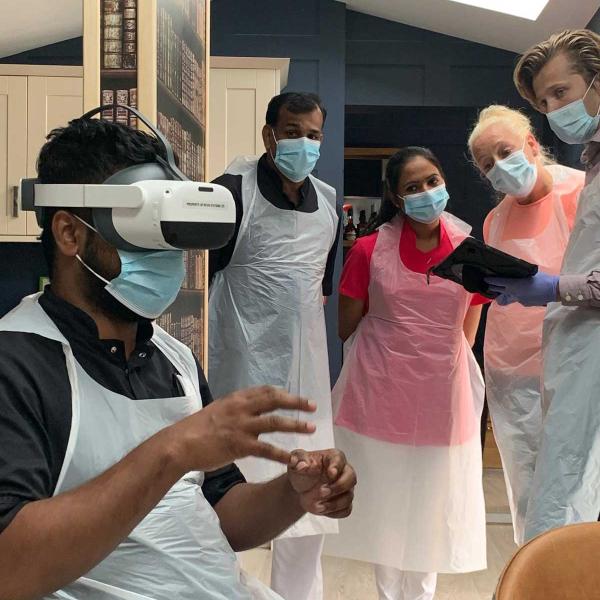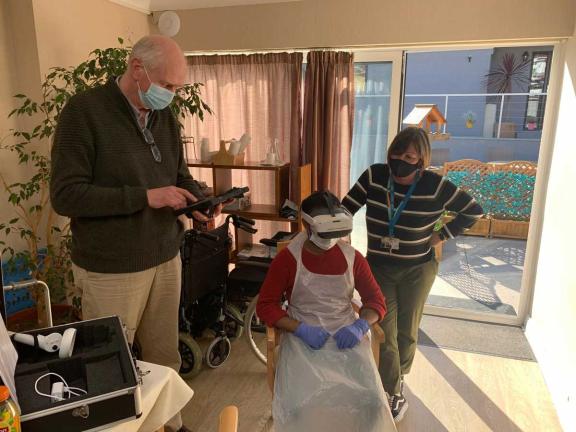Virtual reality headsets for older people with limited mobility
Improving the health and wellbeing of older people with limited mobility.
The challenge
The health and wellbeing of local care home residents were identified as key enablers in allowing people to live well. It was recognised that some residents had experienced 'deconditioning' of physical health in response to Covid lockdowns.
The solution
We collaborated with Oxford-based tech start-up Motus VR (formerly ROVR Systems) and staff and residents at two care homes in Oxfordshire to develop virtual reality (VR) technology. This VR technology has seen some participants walking virtual distances of up to 3km per session from the comfort of their armchairs.
A £350,000 Innovate UK grant funded the 17-month trial and involved residents at:
- Fairfield Residential Home in Summertown
- Auditcare's Mon Choisy care home in Kennington
- assisted living sites in Cornwall
VR headsets were connected to specialist seated treadmills, allowing users to move their feet while sitting in a chair. Those with greater mobility had the option for more active exploration using a safety-enhanced standing treadmill.


The results
The trial results showed that residents previously limited to walking up to a few hundred steps per day progressed to walking distances between 300m and 3km per session. They enjoyed seated immersive experiences for up to 40 minutes. Independent observers found residents competed with themselves to walk further than their last effort and were even more competitive when walking with others. User feedback also showed participants felt a strong sense of achievement when told how far they had explored.
The project demonstrated a broad acceptance and engagement with VR immersive experiences by staff and older communities in residential care settings. The project's success has led to requests for demonstrations at care, nursing homes, and hospices and participation in NHS research studies on anxiety relief and pain distraction. The VR activity therapies showed the potential for motivating unwitting exercise, which improved participants' physical, emotional, and cognitive wellbeing.
Motus VR made significant commercial progress, receiving orders from further education colleges and attracting commercial interest and sales that would not have been possible without the project's development. Lessons learned during the partnership project led Motus VR to develop a self-contained Motus Relieve system that operates independently of local Wi-Fi, further enhancing commercial value.
The project has spurred academic interest from the NHS, and research proposals from Sheffield Hallam University and the University of Oxford are under consideration.
Oxford care home residents trial virtual reality walking - BBC News.
Our partnership with Oxfordshire County Council has given us the opportunity to trial our virtual reality technology in a real life environment and the results have been beyond our expectations.
We have seen our VR technologies expand the horizons of people whose worlds have shrunk, providing safe opportunities for social connections, learning and unwitting exercise. These wonderful experiences enhance their lives and further build caring relationships with the fantastic staff.
We have witnessed glimpses of the real person where advanced dementia otherwise hides these interesting people, and seen new connections and insights for caring staff with people who usually don’t engage in activities.
Described by one staff member as ‘miraculous’, our VR technologies are magical motivators of social connections and movement, and we continue to work with the county council, social care and the NHS to assist people in living longer, better.